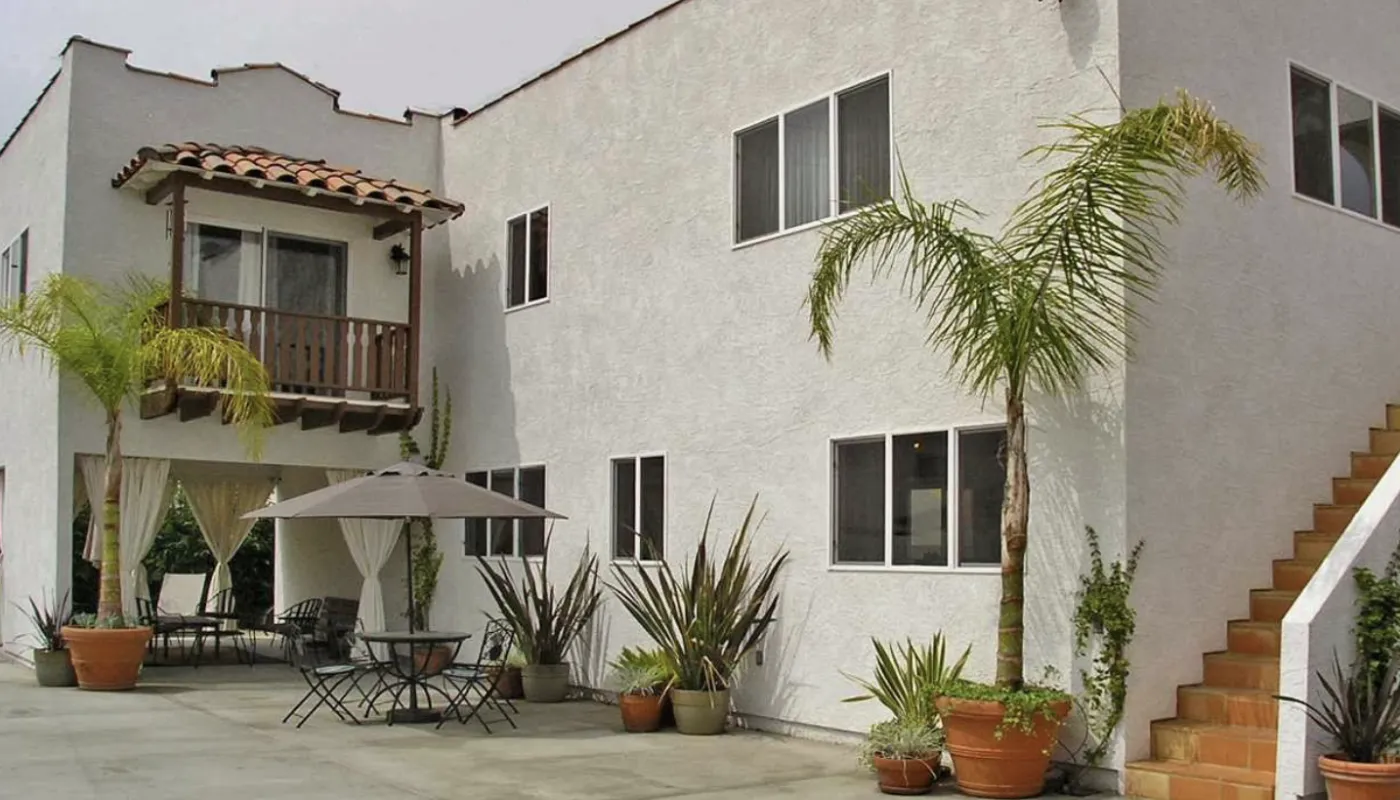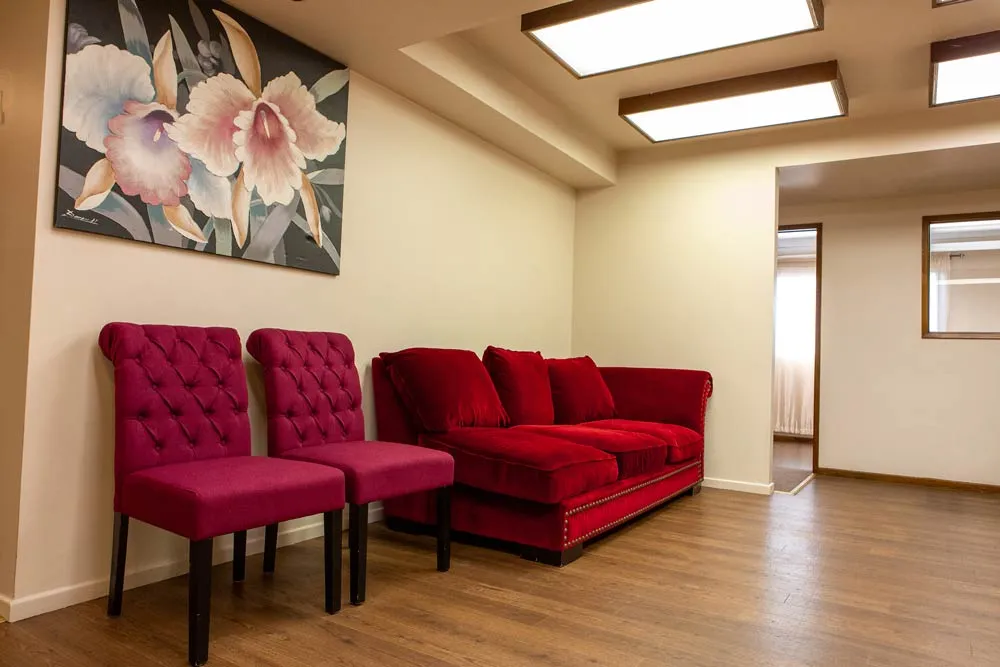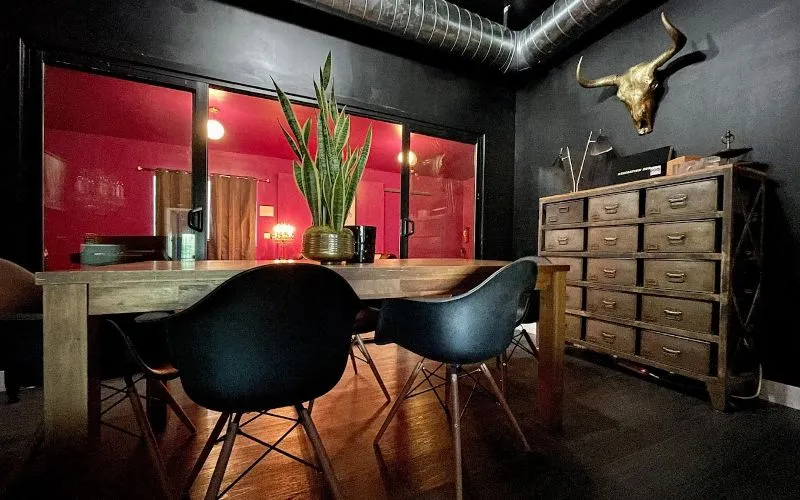Explore IOP rehabs and intensive outpatient programs in Los Angeles and nearby cities. This directory connects you with structured, flexible treatment options that provide a higher level of care than standard outpatient programs. IOPs offer therapy, group counseling, and skill-building sessions, allowing you to work toward recovery while balancing work, school, and daily commitments. Compare program features and locations to find the right IOP for your needs.
Ads
More Info
Advertisement Disclosure
Our website is funded by advertisers who pay for prominently labeled placements.
Read More92 Rehab Centers were found
Filters
Locations
- Los Angeles(+98)
- Culver City(+14)
- Westlake Village(+13)
- Woodland Hills(+11)
- Beverly Hills(+10)
- Santa Monica(+9)
- Sherman Oaks(+7)
- West Hollywood(+6)
- Malibu(+5)
- Chatsworth(+5)
- Pasadena(+5)
- Encino(+5)
- Redondo Beach(+4)
- Lancaster(+4)
- Reseda(+4)
- Studio City(+4)
- Northridge(+3)
- San Mateo(+3)
- Lynwood(+3)
- Vernon(+3)
- Van Nuys(+3)
- Tarzana(+3)
- North Hollywood(+3)
- Glendale(+3)
- Gardena(+3)
- Riverside(+3)
- Granada Hills(+2)
- Shadow Hills(+2)
- Venice(+2)
- Orange County(+2)
- Pomona(+2)
- West Hills(+2)
- Valley Village(+2)
- Burbank(+2)
- Brentwood(+2)
- Long Beach(+2)
- Sun Valley(+1)
- Torrance(+1)
- San Jacinto(+1)
- San Pedro(+1)
- Upland(+1)
- Whittier(+1)
- Toluca Lake(+1)
- Thousand Oaks(+1)
- Simi Valley(+1)
- Mission Viejo(+1)
- Acton(+1)
- Beaumont(+1)
- Wilmington(+1)
- Panorama City(+1)
- Anaheim(+1)
- Laguna Hills(+1)
- Inglewood(+1)
- Alhambra(+1)
- Rosemead(+1)
- Maywood(+1)
- Manhattan Beach(+1)
- Monterey Park(+1)
- Claremont(+1)
- Covina(+1)
- La Puente(+1)
- Pico Rivera(+1)
- San Fernando(+1)
- Azusa(+1)
- Santa Fe Springs(+1)
- Glendora(+1)
- Agoura Hills(+1)
- El Segundo(+1)
- Duarte(+0)
- Sunland(+0)
- Downey(+0)
- Cudahy(+0)
- El Monte(+0)
- Compton(+0)
- Hermosa Beach(+0)
- Cerritos(+0)
- Calabasas(+0)
- Bellflower(+0)
- Bell Gardens(+0)
- Avalon(+0)
- Arcadia(+0)
- Altadena(+0)
- Paramount(+0)
- South El Monte(+0)
- Walnut(+0)
- West Covina(+0)
- Santa Clarita(+0)
- San Gabriel(+0)
- San Dimas(+0)
- Rolling Hills(+0)
- Orange(+0)
- Hawaiian Gardens(+0)
- Palmdale(+0)
- Norwalk(+0)
- Montebello(+0)
- Lakewood(+0)
- South Pasadena(+0)
- Carson(+0)
- Hawthorne(+0)
Conditions
- Drug(+278)
- Alcohol(+219)
- Mental Health(+195)
- Opioid(+193)
- Cocaine(+184)
- Trauma(+180)
- Methamphetamine(+177)
- Benzodiazepines(+174)
- Heroin(+173)
- Prescription Drugs(+159)
- Depression(+152)
- Anxiety(+149)
- Xanax(+145)
- Synthetic Drugs(+138)
- PTSD(+133)
- Adderall(+131)
- Marijuana(+112)
- Bipolar(+109)
- Ecstasy(+104)
- MDMA(+99)
- Behavioral Health(+93)
- LSD(+93)
- Psychedelics(+91)
- Fentanyl(+71)
- Stress(+71)
- OCD(+69)
- Personality Disorders(+63)
- ADHD(+61)
- Gambling(+38)
- Eating Disorders(+35)
- Anorexia(+34)
- Binge Eating Disorder(+34)
- Bulimia(+33)
- Schizophrenia(+32)
- Gaming(+28)
- Internet Addiction(+27)
- Sex Addiction(+25)
- Burnout(+23)
- Pornography(+22)
- Shopping(+10)
- Narcissism(+8)
Insurances
- BlueCross BlueShield(+129)
- Aetna(+126)
- Anthem(+105)
- Cigna(+105)
- United Healthcare(+66)
- Humana(+63)
- Optum(+53)
- Medicaid(+53)
- MHN(+51)
- Magellan Health(+47)
- Kaiser Permanente(+39)
- Medicare(+31)
- GEHA(+31)
- ComPsych(+29)
- Highmark(+25)
- AmeriHealth(+13)
- Tufts Health(+11)
- Oscar(+9)
- CareFirst(+9)
- Molina Healthcare(+8)
- Intermountain Healthcare(+6)
- Beacon Health Options(+2)
- UMR(+2)
- NYSHIP(+2)
- ILWU(+2)
- Geisinger(+2)
- Empire Life(+2)
- Empire BCBS(+2)
- Bright Health(+2)
- GuideWell(+1)
Therapies

$30,000-$50,000

N/A

$20,000 - 30 days

$1,750-$3,500

$30,000+/month - 30 - 90 days

$1,50
How Intensive Outpatient Programs Work in Los Angeles
An intensive outpatient program (IOP) is a structured treatment option for individuals recovering from addiction or mental health disorders who need a higher level of care than standard outpatient therapy but do not require full-time residential treatment. IOPs offer comprehensive support while allowing participants to maintain daily responsibilities, such as work, school, or family life. To learn more about where IOPs fit in the continuum of care, explore different levels of care available in Los Angeles.
Los Angeles is home to a variety of IOPs that cater to different needs, including addiction recovery, dual diagnosis treatment, and mental health support for conditions like anxiety, depression, or trauma. These programs provide a balanced approach to recovery, combining therapy, group support, and skill-building sessions. IOPs can be particularly helpful for individuals dealing with alcohol use disorder, drug addiction, cocaine, benzodiazepine, or opioid addiction.
Understanding an Intensive Outpatient Program
An IOP serves as a step down from inpatient or residential treatment, providing ongoing support for individuals who are transitioning back into daily life. It can also be an alternative to inpatient rehab for those who need structured care but cannot commit to full-time residential treatment. Many IOPs offer a range of therapies tailored to client needs.
IOPs typically involve several therapy sessions per week, covering individual counseling, group therapy, and relapse prevention strategies. The goal is to help individuals develop coping skills, strengthen emotional resilience, and build a strong foundation for long-term recovery.
Who Benefits from an IOP?
An IOP is suitable for individuals who:
- Have completed inpatient rehab and need continued support before transitioning to full independence
- Are struggling with substance use but do not require 24/7 supervision
- Need a structured recovery plan while continuing to work or attend school
- Have a supportive home environment where they can apply recovery strategies
- Require treatment for co-occurring mental health disorders alongside addiction recovery
For those who need more intensive care, a partial hospitalization program (PHP) may be recommended, as it offers full-day treatment while allowing individuals to return home in the evenings.
What to Expect in an IOP
An intensive outpatient program typically consists of multiple therapy sessions each week, focusing on different aspects of recovery. Individual therapy sessions help individuals explore personal challenges, develop healthier coping mechanisms, and set long-term goals.
Group therapy provides peer support, accountability, and the opportunity to learn from others in recovery. Many IOPs use cognitive behavioral therapy, dialectical behavior therapy, and motivational interviewing to help participants reframe negative thought patterns and manage stress effectively.
Family therapy is often included to help repair relationships affected by addiction or mental health struggles. Engaging family members in the recovery process can strengthen support systems and improve communication.
Relapse prevention education teaches individuals how to recognize triggers, build healthier routines, and maintain long-term recovery. Many IOPs also incorporate mindfulness, meditation, or holistic wellness practices to support emotional well-being. For individuals coping with behavioral issues like gaming addiction or pornography addiction, specialized support may be available.
Medication management may be available for individuals with co-occurring mental health conditions such as depression, anxiety, or PTSD. This ensures that participants receive the right psychiatric care alongside their therapy sessions.
Advantages of an IOP
One of the biggest benefits of an IOP is its flexibility. Unlike inpatient treatment, individuals in an IOP can continue working, going to school, or taking care of family obligations while receiving structured care. This allows them to integrate recovery strategies into real-life situations and build resilience in their daily environments.
IOPs also provide a strong sense of community, as participants engage in group therapy sessions and peer support networks. This reduces feelings of isolation and helps individuals stay motivated in their recovery journey.
Compared to inpatient rehab, an IOP is often more affordable, making it an accessible option for those who need structured care but cannot commit to full-time residential treatment. Many insurance plans cover IOPs, though coverage varies depending on the provider.
Transitioning from an IOP
After completing an IOP, individuals often continue with standard outpatient therapy, support groups, or relapse prevention programs. Many treatment centers offer alumni groups and aftercare services to provide continued guidance and accountability.
Some individuals choose to transition into a sober living environment after completing an IOP, especially if they need additional structure before living independently. Sober living homes provide a substance-free setting where individuals can practice recovery skills in a supportive community.
Support groups such as Alcoholics Anonymous, Narcotics Anonymous, or SMART Recovery are valuable tools for maintaining sobriety after completing an IOP. Many individuals find that ongoing participation in peer-led groups helps them stay connected to their recovery goals.
Finding an IOP in Los Angeles
Los Angeles has a variety of IOPs that specialize in different areas, including addiction recovery, trauma therapy, and mental health support. When choosing an IOP, it is important to consider factors such as the program’s treatment approach, session frequency, and the availability of specialized services such as dual diagnosis care. Many IOPs offer free consultations or assessments to help individuals determine the best level of care for their needs. Speaking with a treatment professional can provide insight into which program aligns best with personal recovery goals.
Frequently Asked Questions
How long does an IOP last?
Can I work while attending an IOP?
Is an IOP covered by insurance?
How is an IOP different from standard outpatient treatment?
Ads
More Info
Advertisement Disclosure
Our website is funded by advertisers who pay for prominently labeled placements.
Read More






































